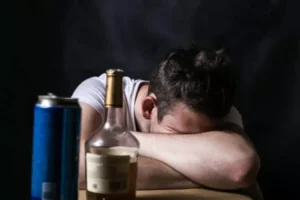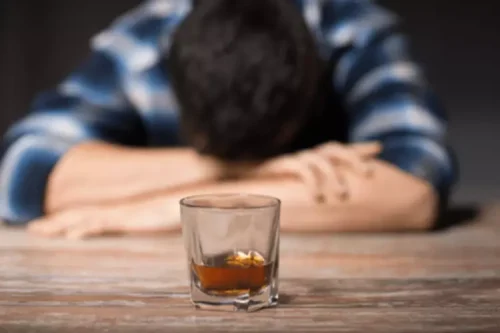
It’s common for people with social anxiety disorder to drink alcohol to cope with social interactions. Doing this can lead to a dependence on alcohol during socializing, which can make anxiety symptoms worse. Treating alcohol addiction and depression simultaneously is crucial for adequate recovery, as these conditions often co-exist and exacerbate each other. Combining strategies to address both disorders, an integrated treatment approach is essential. This typically includes a combination of psychotherapy, medication-assisted treatment (MAT), and lifestyle interventions. While the literature suggests that nondependent levels of alcohol consumption may impact the treatment of depression, subclinical levels of consumption may not be addressed in a general psychiatric or psychological setting.
The Risks of Quitting Alcohol Cold Turkey
Below, we’ll cover the reasons why, and what you can do to take care of yourself if you suffer from either or both conditions. Antidepressants focus on treating the dopamine, serotonin, and norepinephrine neurochemical receptors by promoting increased chemical balance within the brain. They can take up to days to reach their full effect, and treatment with them usually lasts at least a year or longer depending on individual needs. These feelings may develop after a difficult life experience like losing one’s employment or a difficult breakup from a romantic relationship.
- However, you can make lifestyle changes to help you reduce your anxiety as well as learn to cope with it.
- BetterHelp can connect you to an addiction and mental health counselor.
- Get professional help from an online addiction and mental health counselor from BetterHelp.
- Depressed male problem drinkers were three times as likely to become daily drinkers compared with their cohort of nondepressed problem drinkers (Crum et al., 2001).
Effects of Alcohol Use

That is, patients who believe that their current alcohol use will interfere with their depression treatment may be more willing to change their drinking than those who do not see a link between the two. As part of this discussion, the therapists can attempt to highlight the discrepancy that exists between patients’ current situations and what they desire (Miller & Rollnick, 1991). For most patients, relief of depressive symptoms will be the foremost concern. Therefore, it may be particularly important for therapists to help patients understand the impact of their alcohol use on depressive symptoms.
Changes You Can Make

Lower-than-normal levels of these important chemical messengers can temporarily affect your speech, coordination, and energy. Drinking activates the reward system in your brain and triggers dopamine release, so alcohol often seems to have a stimulating effect — at first. Read our review of the best online therapy options to find the right fit for you.
- This can create a harmful cycle of depression and alcohol dependence.
- It’s essential to monitor and adjust these medications carefully, as some antidepressants can have interactions with alcohol or other substances.
- Most clinicians and researchers would agree that alcoholics experience high rates of anxiety and depressive symptoms and that these problems must be addressed early in treatment (Brady and Lydiard 1993).
- But for some people, these feelings don’t go away – they get worse and their feelings of depression can start to interfere with everyday life.
- As a result, it’s possible that having a few drinks that make your BAC rise and then fall back to normal again can make you more anxious than you were before.
If you have a severe mental health problem and a drinking problem, you may be given a ‘dual diagnosis’. If so, mental health services should be in charge of your treatment, rather than drug and alcohol services. If you’re worried about drinking or feel it’s affecting your mental health, a lot of help is available. This content mentions substance alcohol and depression abuse or addiction (which may include mentions of alcohol or drug use), suicide or suicidal thoughts, self-harm, depression and anxiety. There are details of where to find help at the bottom of this page. When COVID-19 hit — bringing the compound stressors of illness and uncertainty — it threw many individuals into instant, extreme stress.

How alcohol worsens depression

It has grown to include treatment for many conditions including depression and substance use disorders. Substance-induced depression is different from major depressive disorder and, by definition, should improve once a person stops consuming substances (such as alcohol). Alcohol and depression are https://ecosoberhouse.com/ connected in several ways, and the two often feed off of one another. People may turn to alcohol as a way to cope with mood problems, but drinking alcohol can also contribute to symptoms of depression. Alcohol use can also affect how antidepressants work, which can affect depression treatment.
Treatment and Rehabilitation for Alcohol Dependency
- However, if you continue to exhibit alcoholism after your depressive symptoms go away, you may need alcohol addiction treatment.
- It can be a never-ending cycle that ultimately brings you to a very dark and desolate place.
- Alcohol can amplify feelings of hopelessness and sadness, making it harder for individuals to cope with negative emotions.
- The more you drink, however, the more likely your emotional state will begin plummeting back down.
- But what you may know be aware of is excessive drinking can seriously cause your mood to tank because of insomnia and/hypersomnia.
- But clinical depression isn’t just a matter of feeling the occasional ups and downs or periodic sadness caused by issues of daily life.
Alcohol’s impact on brain chemistry is profound and multifaceted. Primarily, it alters the levels of neurotransmitters, which are chemicals that transmit signals in the brain and affect mood and behavior. The more these chemicals dip in your system, the crappier you feel. If you keep drinking, these neurotransmitters struggle to achieve balance.
